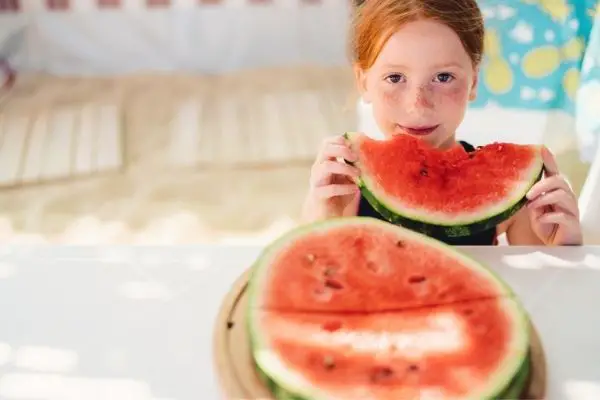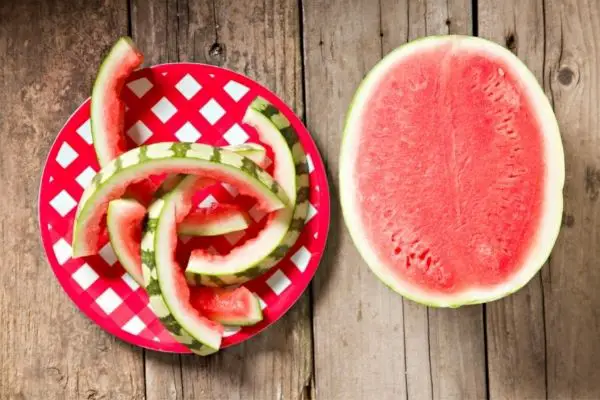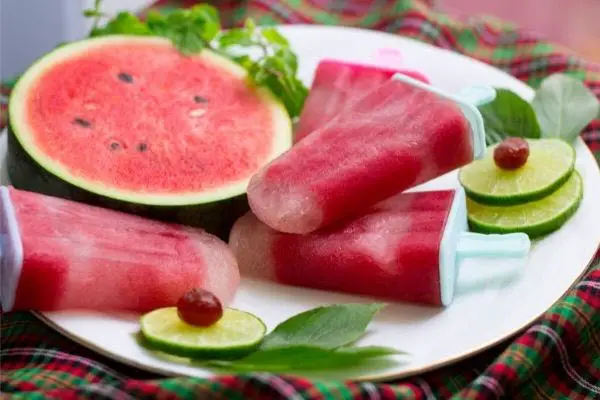Can You Compost Watermelon Rinds? | Green Scraps For Your Compost
Summer calls for watermelon! Not to mention it is one of those fruits that my kids will eat and eat without me having to beg them too! My oldest even rates it higher than ice cream!

If you’re looking for an all-natural way to keep your family hydrated during the hot summer months, watermelon is here to save the day. Few foods contain more water and electrolytes than this fruit.
Of course, only the inner flesh of a watermelon is readily edible. And including watermelon in your regular diet means piling up a whole lot of leftover rinds!
Wondering which part is the watermelon rind?
It’s the firm white part of the fruit that’s left behind after you’ve eaten all those pink fleshy chunks. It has a crisp texture like cucumbers and can be used in many ways.
So, rather than throw old watermelon rinds in the trash, you can compost them!
Here’s how to get the most out of including watermelon rinds in your home compost pile this summer:
Can Watermelon Rinds Be Composted?
Yes.
Watermelon rinds are an organic plant matter that is a perfect addition to the home compost heap.
Once you’ve scooped away all of the edible flesh inside the watermelon, composting is easily the best and most sustainable way to dispose of the leftover rind.
Is Watermelon Rind Good For Compost?
Yes! Watermelon rinds provide everything that the beneficial microbes in your compost pile need to thrive.
Watermelon rinds are rich in nitrogen and other nutrients. They also have a relatively high moisture content.

Compost watermelon rinds as you would other green materials like fresh grass cuttings or pulled garden weeds.
What is the Best Way to Add Watermelon Rinds to Compost?
Watermelon rinds are quite tough in order to protect the more delicate flesh and seeds inside. The rinds can take noticeably longer to decompose than other fruits and vegetables.
Rest assured that your watermelon rinds will compost just fine with time.
You can speed up the process by cutting the rind into small pieces before mixing it into your compost pile or bin. Aim for pieces that are 3 inches long or smaller for best results.
Another way to fast-track watermelon rind composting is to add them to a Bokashi bucket! The microorganisms that are present in Bokashi composting will start processing the rind before you add it to your garden compost or bury it.
While I love my own Bokashi bucket, we consume so much watermelon when in the garden that the rind normally goes straight into my compost bin.
While you can compost watermelon flesh as well, consider offering up any leftovers to the local birds before adding the rinds to your compost. (Of course, this doesn’t apply to watermelon that has already started to rot!)

Watermelon flesh can also be easily turned into homemade ice pops by simply blending the flesh and freezing the juice in ice pop molds.
Frequently Asked Questions
Can you compost watermelon seeds?
Yes, you can compost watermelon seeds. Just keep in mind that the seeds might germinate before your compost pile has a chance to break them down.
The hotter your compost pile’s internal temperature, the less chance that the seeds will survive and attempt to grow.
While sprouting seeds won’t ruin your compost, there are steps you can take to prevent this from happening. Allowing the seeds to dry out before composting will prevent germination (you can roast the seeds in an oven to speed up the process).
Can you add watermelon to bokashi compost?
Bokashi composting is a unique technique that utilizes fermentation to break down old organic matter. You can add most fruits and vegetables, including watermelon, to your Bokashi bin.
Watermelon rinds are fairly dry and won’t disrupt the moisture level of your compost bin. However, if you place fresh watermelon flesh into a Bokashi bin, the water content could encourage the growth of harmful bacteria – so be sure you drain your Bokashi regularly.






